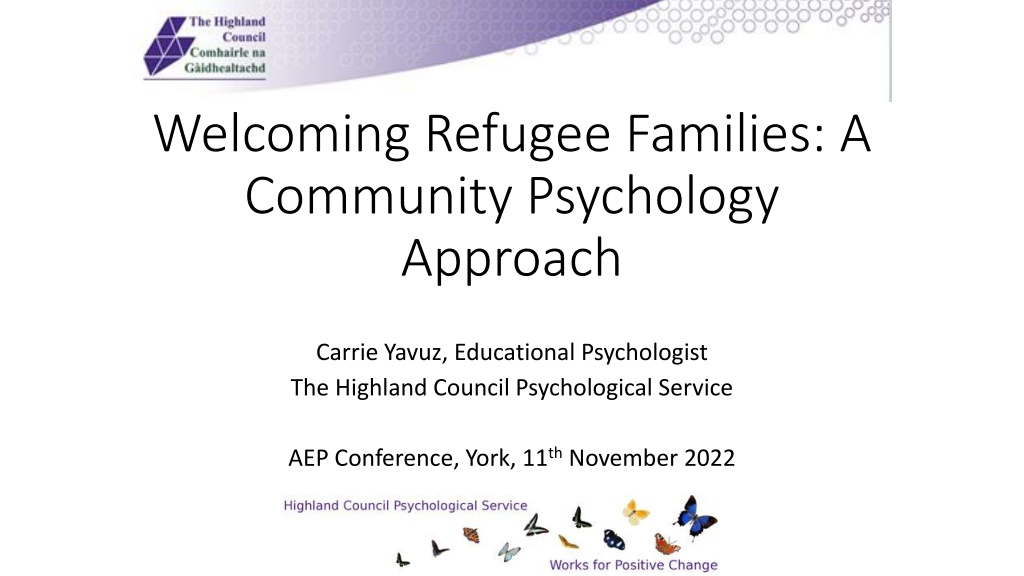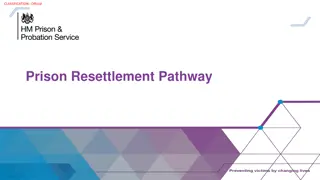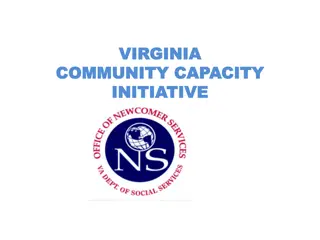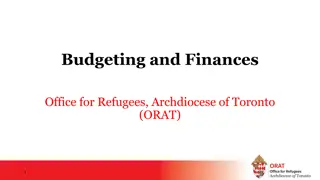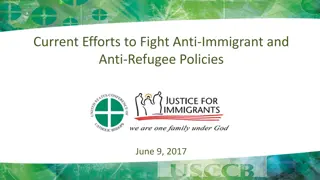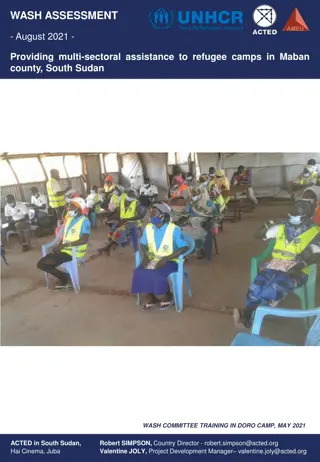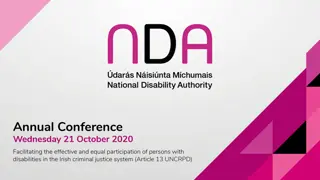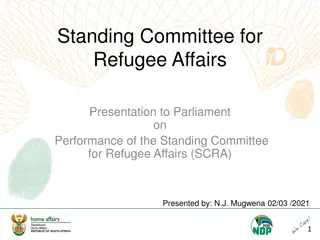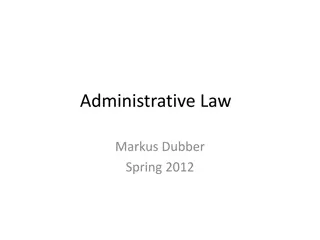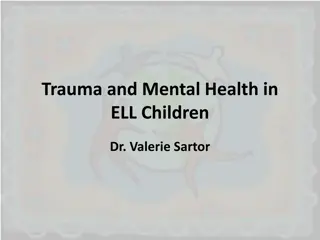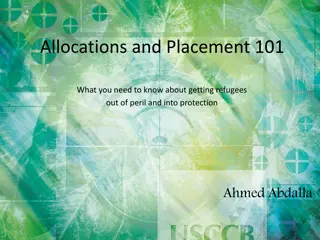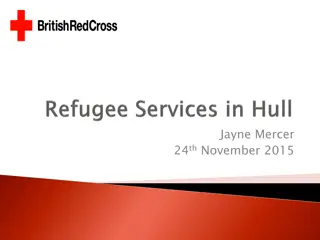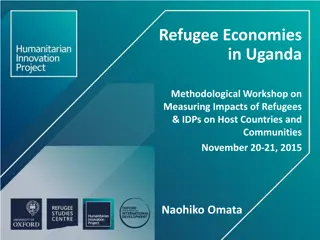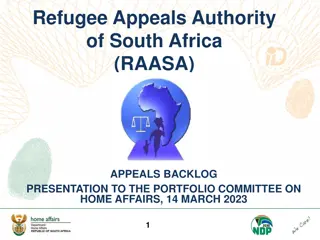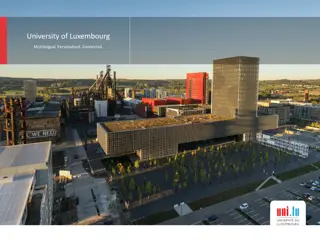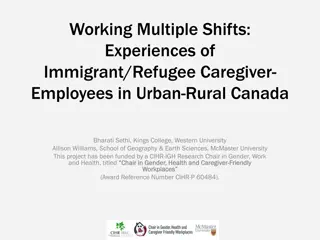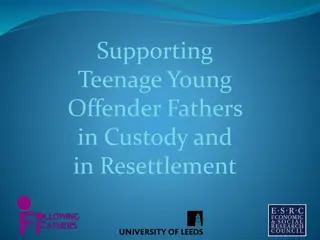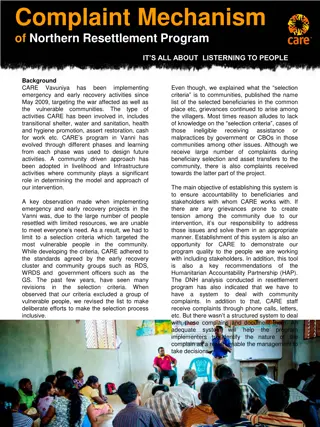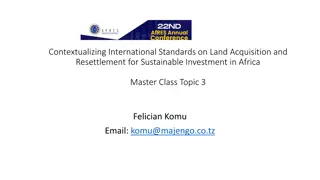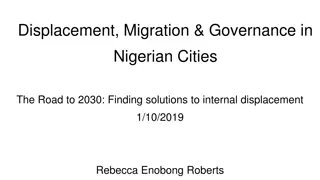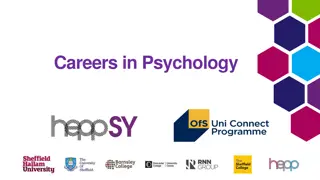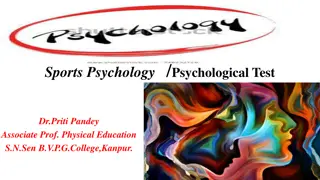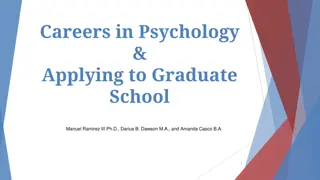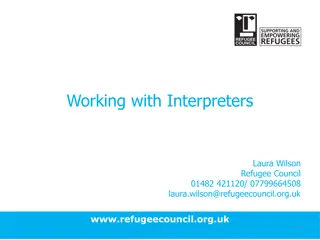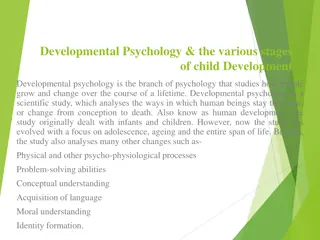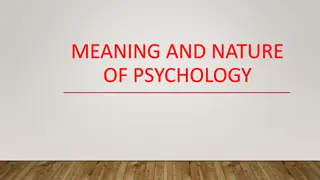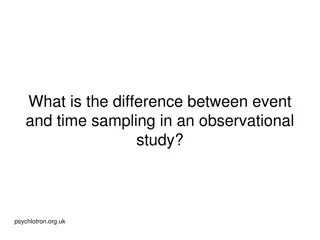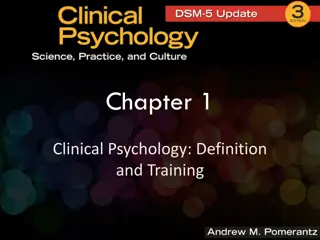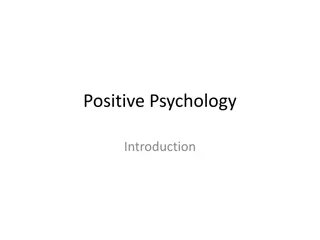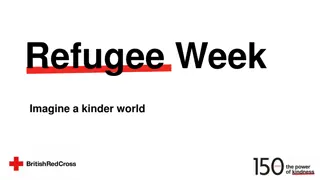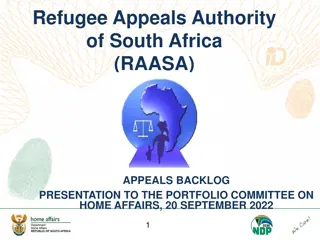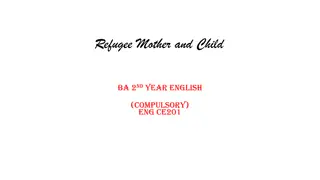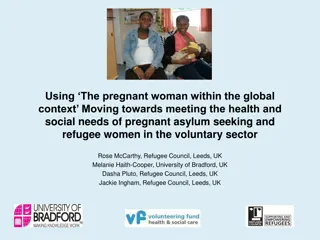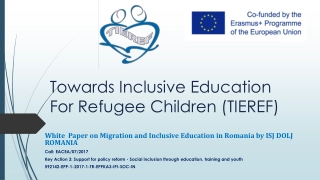Promoting Community Well-Being through Refugee Resettlement: A Community Psychology Perspective
Explore how community psychology principles can support refugee families in resettlement programs, focusing on societal responses and government initiatives. Learn about the Highland Council's approach and the psychological aspects contributing to community cohesion and empowerment.
Download Presentation

Please find below an Image/Link to download the presentation.
The content on the website is provided AS IS for your information and personal use only. It may not be sold, licensed, or shared on other websites without obtaining consent from the author. Download presentation by click this link. If you encounter any issues during the download, it is possible that the publisher has removed the file from their server.
E N D
Presentation Transcript
Welcoming Refugee Families: A Community Psychology Approach Carrie Yavuz, Educational Psychologist The Highland Council Psychological Service AEP Conference, York, 11thNovember 2022
Workshop Outline Resettlement Programmes Community Psychology The Highland Council s approach with each project Societal and government responses A role for Educational Psychology Thoughts, reflections and questions
Three programmes: Syrian Vulnerable People Resettlement Scheme (SVPRS) 2016-2019 Afghan Resettlement and Assistance Programme (ARAP) 2021 Ukrainian Resettlement Programmes: 2022 Homes for Ukraine Super Sponsor Scheme Government response
Community Psychology Community Psychology goes beyond an individual focus and integrates social, cultural, economic, political, environmental, and international influences to promote positive change, health and empowerment at individual and systems level (communitypsychology.com) focus on improving community life for all citizens ..and promoting psychological well-being (Heller et al. 1984) existing EP practices and skills, models and consultation, and person centred practices may lend themselves to the promotion of community cohesion. The psychological understanding that underpins EP practice can also support and inform community cohesion in schools. Jackson Taft et al. (2020)
The Principles of Community Psychology ( The Principles of Community Psychology (Srebnik Interested in promoting communities that include all their members .understanding a valuing diverse human perspectives, including those of commonly disenfranchised groups Focus on human strengths and competency enhancement Try to practice from a non-hierarchical position .clearly recognise the value of peer support and influence Support training that is multi-disciplinary and collaborative Value training and teaching that utilizes expertise from those who work successfully in the community Work for prevention and promotion Focus on children and human rights Apply knowledge to programmes that impact large groups as well as individuals Affect social change in a broad context ..facilitates empowerment and esteem in disadvantaged and disenfranchised people Engage in political and social action intended to overcome pathology in systems and society Srebnik, 1991) , 1991)
Highlands Approach - SVPRS Strategic and Operational Groups Embargo on information increased global citizenship education, equality, inclusion & children s rights Community Engagement Events - https://www.youtube.com/watch?v=gO0_zdWE6Yk Input to schools and frontline staff welcoming families, responding to trauma Ongoing supervision to frontline staff secondary trauma/compassions fatigue
Highlands Approach - ARAP Families all worked for MOD in Afghanistan most had good level of English Similar approach strategic and operational groups Engagement events Input on ongoing support to schools
Highlands Approach - Ukraine Significant number of host families signed up Less time to prepare luckily had a semi-model Difficult to keep in touch with which families where and under which scheme Community engagement events were not held Shift in approach due to numbers in hotels
2022 regarding families from Ukraine arriving
What does the literature say? Social Identity Theory in groups and out groups (Tajfel & Turner, 1985) Individuals tend to have most empathy for individuals who look or act like them (Riess, 2017) Empathy is felt less for those who are dissimilar or distant (Fowler et al., 2020) And the media and possibly societal feeling (brexit, immigration policy etc) is fuelling this?? Currently talk about illegal immigrants however under international law it is not illegal to land on the soil of a country in order to seek asylum or refuge.
The importance of educational psychology BPS Practice Guidelines (2017) Working with cultural difference Reflective practitioners, acknowledging what we bring - ethnocentricity & possible underlying socially conditioned prejudice Acknowledgement of culturally narrow psychological theories
A Role for Educational Psychology McKay (2006) argued that as a profession, educational psychology has a much narrower focus than it had in the early days of the profession caught up in bureaucracy, educational legislation and restrictive departmental and professional boundaries Evidence based psychological practice should be underpinned by values that seek to foster health, caring and compassion, self determination and participation, human diversity and social justice (Prilleltensky & Nelson, 2000) Unique positioning of the EP allows us to be in the natural heartland of holistic services to children and young people across the settings of home, school and community
What next? The profession still have much to do to extend their reach Systemic change should provide structures and processes which improve EPs ability to work in partnership across health, social care and education (Education Scotland, The Future of Educational Psychology Services in Scotland, 2019b)
Thoughts, Reflections, Questions? Thank you Carrie.Yavuz@highland.gov.uk @carrieyavuz
